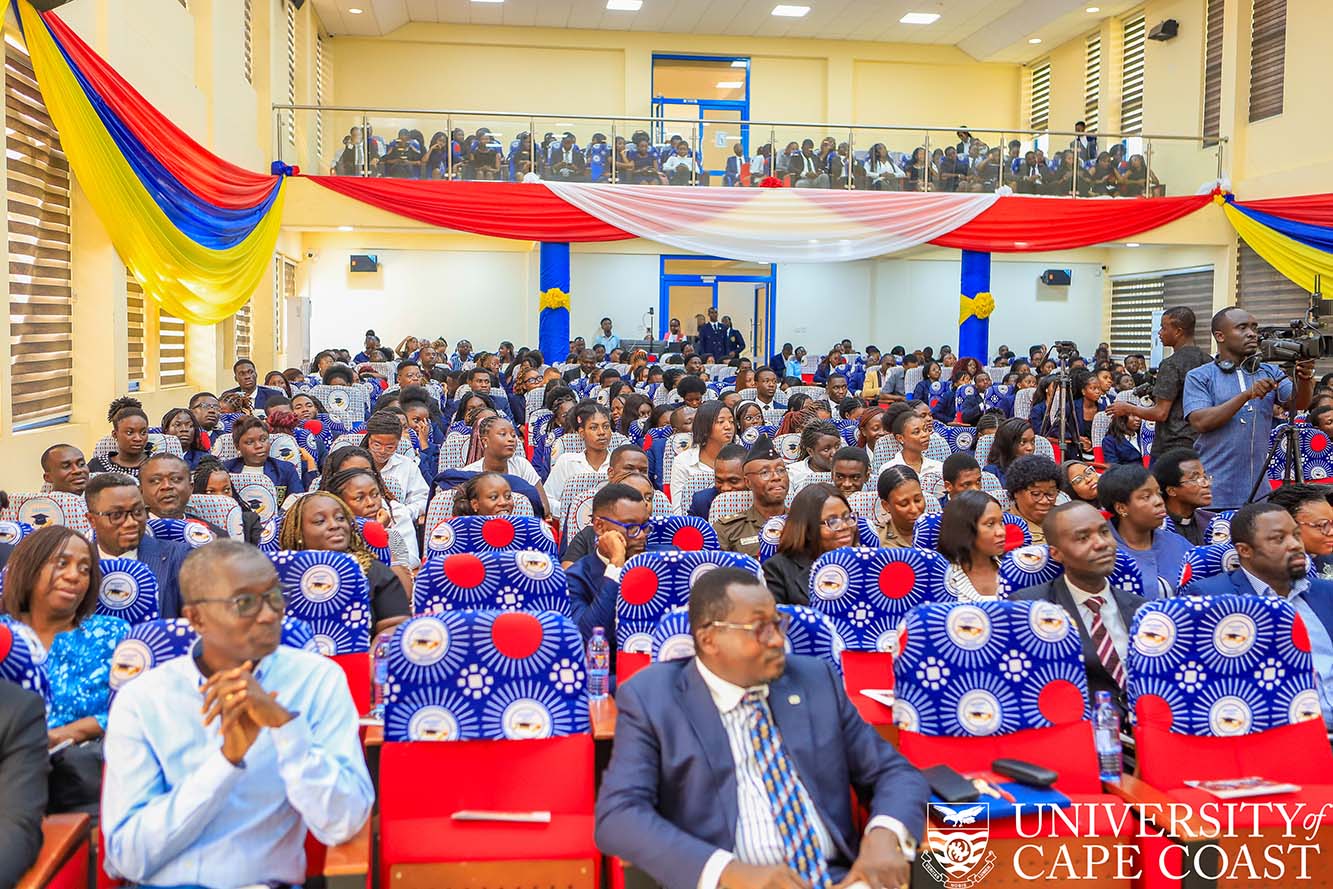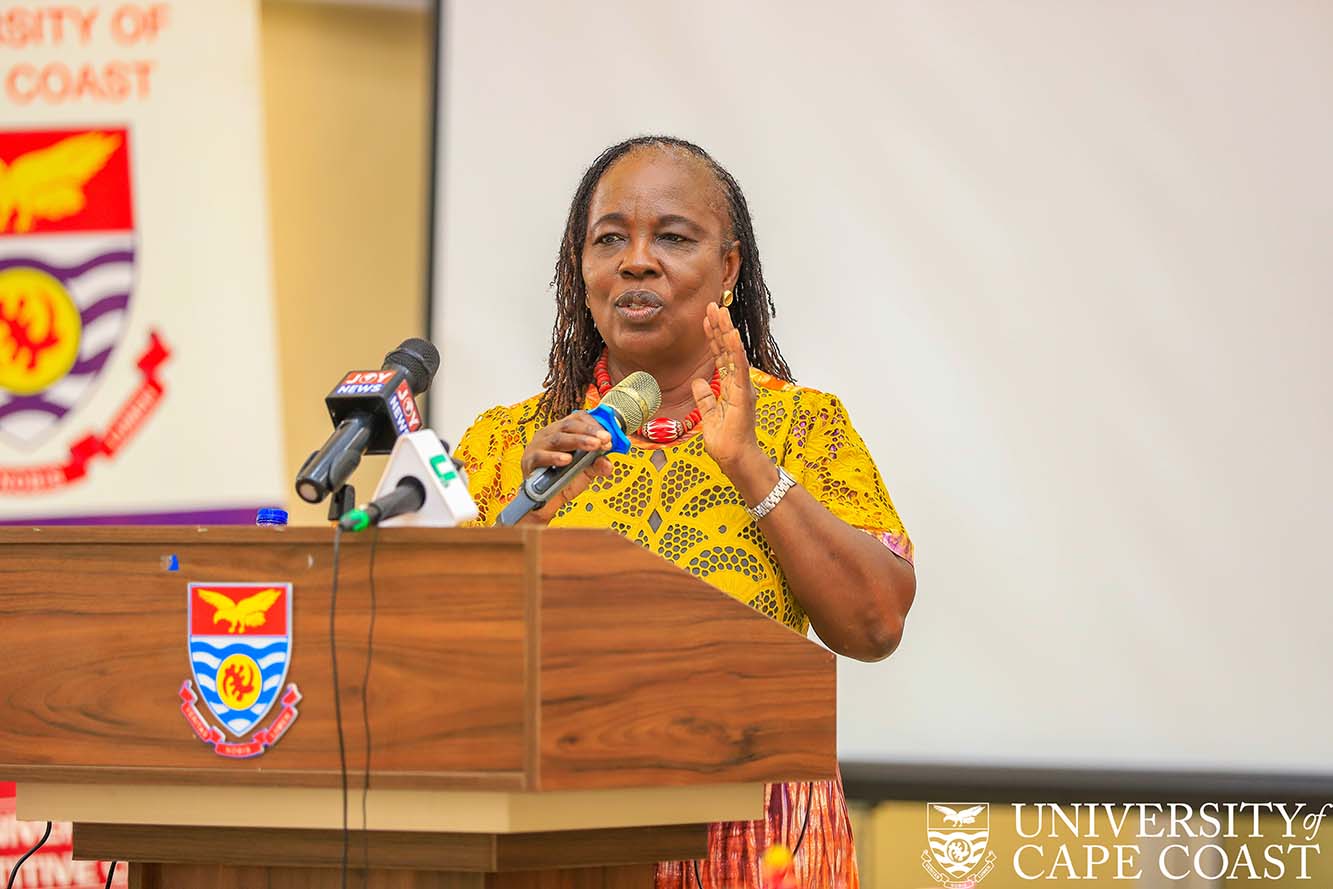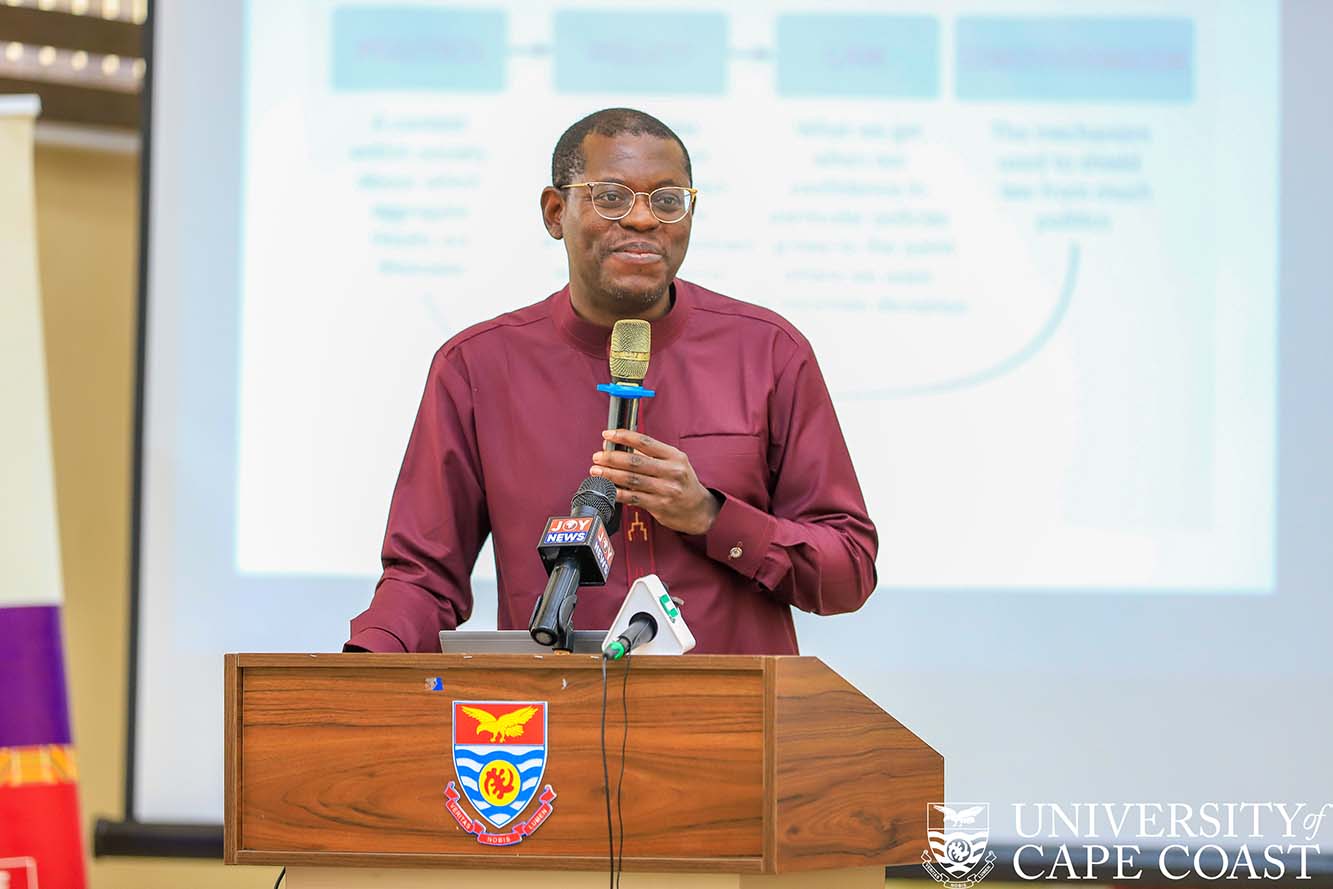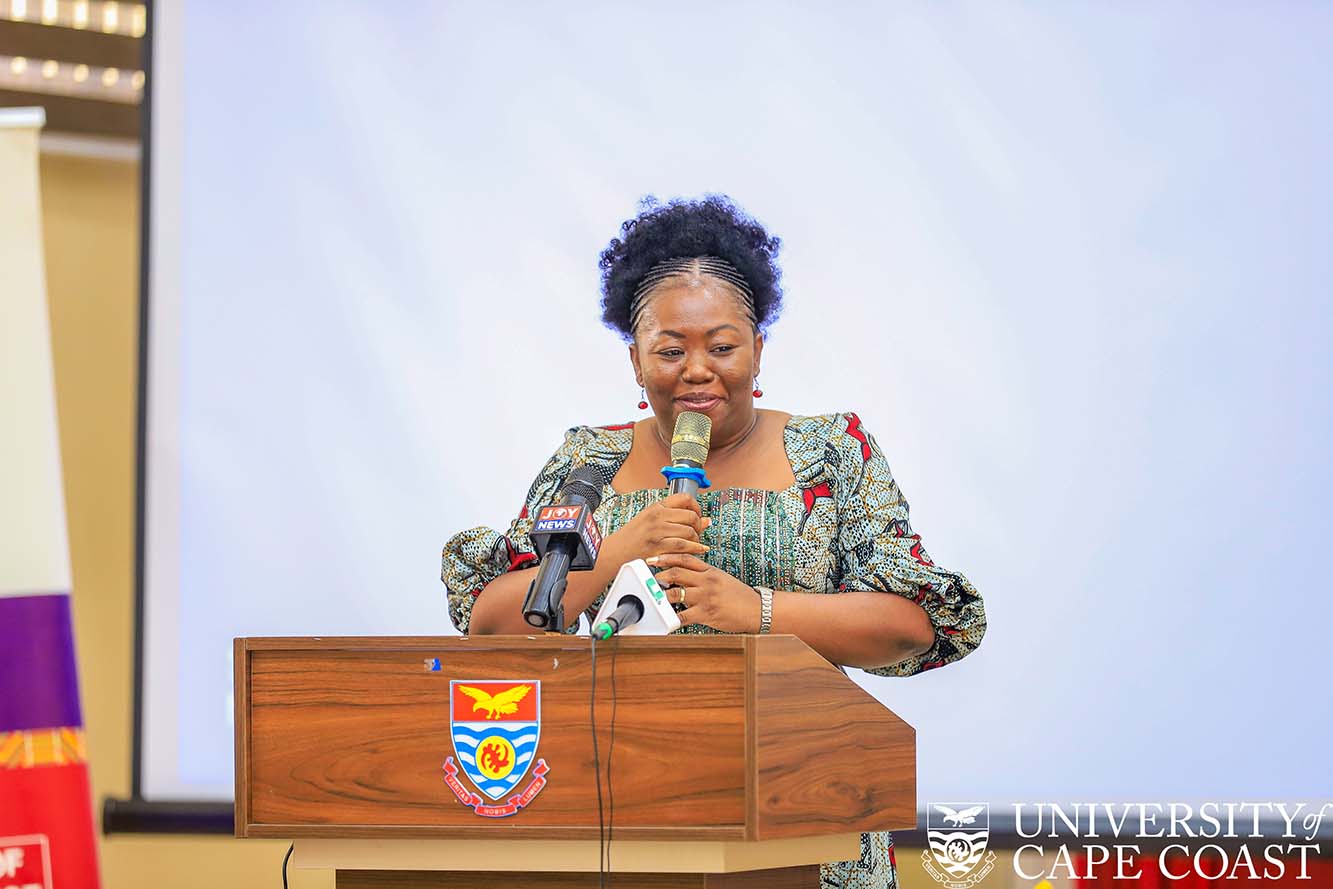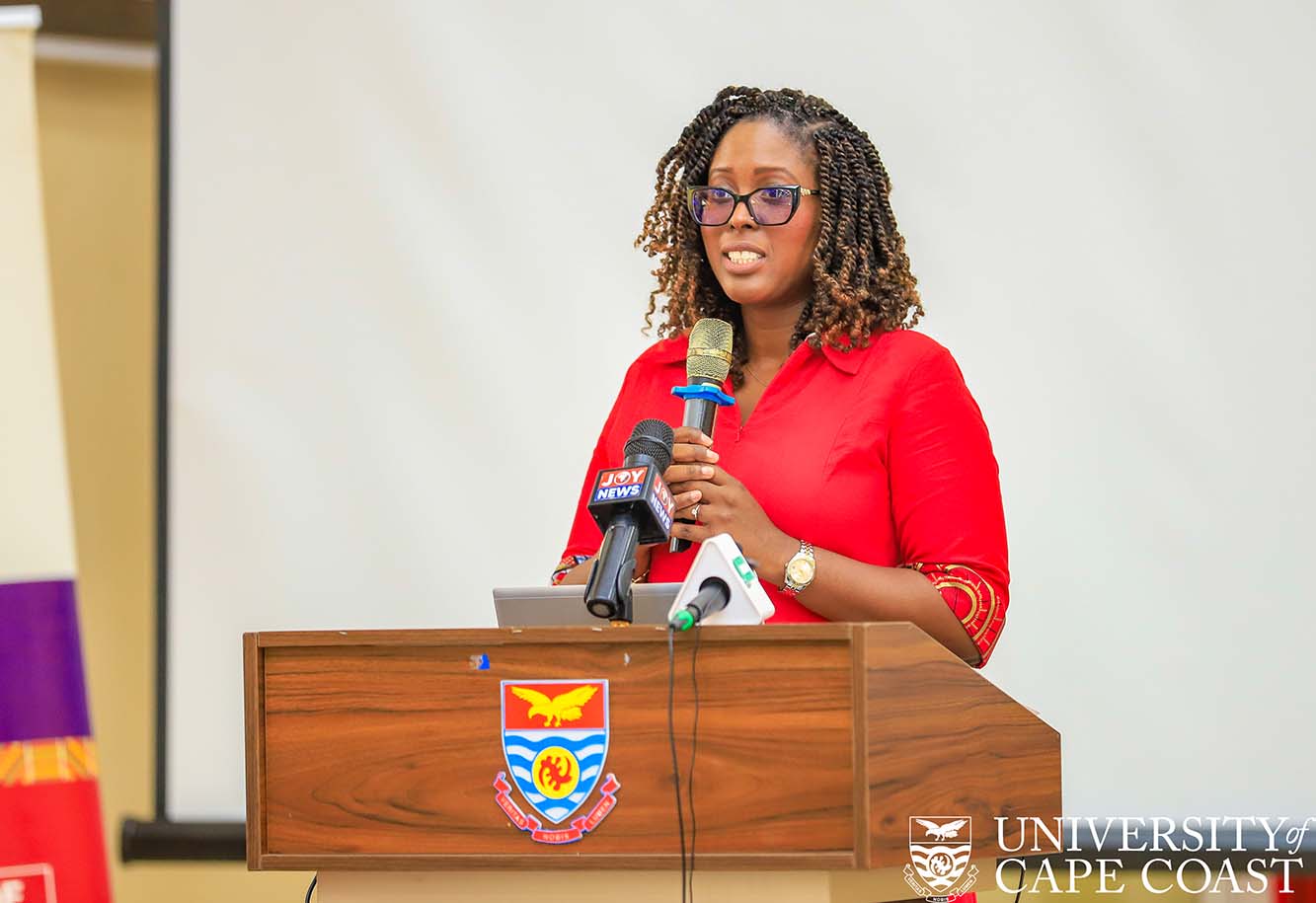The Faculty of Law at the University of Cape Coast (UCC) has reignited the national conversation on constitutional reform, calling for a more participatory and value-driven approach to governance in Ghana.
At the 12th edition of its flagship Jurists’ Confab, held under the theme “Rewriting the Rulebook: Constitutional Reform in Ghana,” prominent legal scholars, social justice activists and policy analysts gathered to assess whether the 1992 Constitution remains fit for purpose in an evolving democratic landscape.
In his opening remarks, the Pro Vice-Chancellor, Professor Denis Worlanyo Aheto, underscored the urgency of the reform agenda. “The call for constitutional review is no longer a conversation of convenience but a call to action,” he declared. “How do we create a participatory constitution?” he asked.
Pro Vice-Chancellor, Professor Denis Worlanyo Aheto
Delivering the keynote address, Emerita Professor Takyiwaa Manuh, a Senior Fellow at the Centre for Democratic Development (CDD-Ghana), argued that while the 1992 Constitution successfully guided political transitions, it has failed to adequately regulate the everyday exercise of power.
“If the constitution clearly spells out the role of power holders, it will prevent the excuse of ignorance of the law and reduce mismanagement in state institutions,” she said. Citing the Kenyan Constitution as a model, she called for the explicit articulation of the values and responsibilities underpinning each arm of government and state institutions.
Emerita Professor Takyiwaa Manuh (Esq.)
Making a presentation on “Ghana’s Recurrent Policy Mania and the Therapeutic Claims of Fiscal Constitution, President of mPedigree, Mr. Bright Simons, called for greater policy accountability to match political accountability.
Mr. Simons, who is also the Vice President of the Imani Centre for Policy and Education, decried what he termed “political dysphonia” which according to him was the disconnect between citizen voices and policy impact. He called for “policy stamina” over transient “political will that will ensure long-term accountability in policy making.”
Mr. Bright Simons
In her address, founder of Kasser Law Firm and chair of the 2023 Constitutional Review Consultative Committee, Mrs. Clara Kasser-Tee, presentated on “The Most Vilified yet Most Enduring Constitution in Ghana’s History “Does the 1992 Constitution Need an Overhaul?” She acknowledged the Constitution’s resilience but insisted that reform efforts must be deliberate and guided by national values.
“The truth about nation-building is that it is a collective affair,” she said. “Legal reform alone will be ineffective without a shared commitment to those values.”
Mrs. Clara Kasser-Tee (Esq.)
In her remarks, the Dean, of the Faculty of Law, UCC, Mrs. Julia Elysa Selman-Ayetey, highlighted the Confab’s role as a platform for critical national dialogue. She referenced recent constitutional controversies—including debates surrounding the anti-LGBTQ+ Bill, parliamentary processes, and the petition to remove the Chief Justice, as signs of a system under strain.
“These developments raise fundamental questions about whether and to what extent constitutional reform is overdue,” she noted.
Dean, the Faculty of Law, UCC, Mrs. Julia Elysa Selman-Ayetey (Esq.)
The Jurists’ Confab brought together academics, judges, private legal practitioners, state attorneys and policymakers. Others were law enforcement agencies, faith leaders, civil society actors and students for a spirited and timely examination of Ghana’s constitutional future.
Source: Documentation and Information Section-UCC

